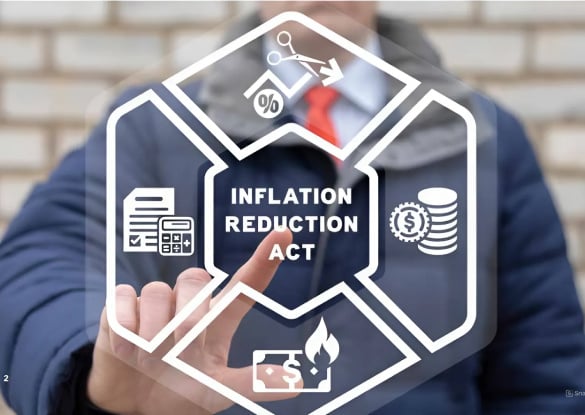
“The Chinese use two brush strokes to write the word 'crisis.' One brush stroke stands for danger; the other for opportunity. In a crisis, be aware of the danger--but recognize the opportunity.”
- John F Kennedy
The US pharmaceutical industry, which is racing to develop a vaccine to beat the novel coronavirus, is facing never-before-seen challenges. The hurdles include public policy mandates (e.g., shelter-in-place orders and closing of non-essential businesses) and sweeping restrictions placed on industry representatives from entering offices and hospitals to meet healthcare professionals (HCPs). These policy mandates and restrictions are causing pharmaceutical companies to rethink their go-to-market strategy.
Three major dynamics introduced by COVID-19, which will affect the commercial models of pharmaceutical companies’ in the US post-crisis are:
- Drop-in Patient/HCP Interactions: According to a McKinsey report, about 80% of HCPs (surveyed from 10 countries, including the US) report a significant drop (62%) in patient volumes. Furthermore, the reduction in patient interactions varies by specialty.1 For example, the decline in the number of oncology-related visits is much less than that of cardiology (possibly reflecting patient or physician perceptions of urgency). Additionally, medical claims data indicate considerable geographic variations in the timing and severity of the patient-volume decline in the US. While the number of remote patient/HCP engagements have spiked, it has not offset the loss of in-person interactions.
- Decline in Total Sales Rep/HCP Engagements: Compared to pre-crisis interactions, HCPs in the US expect a 15% reduction in overall interactions with sales reps, according to the McKinsey report.1 HCPs also expect remote engagement with sales reps to be a more prominent part of the interaction mix post-crisis.
- Acceleration and Deepening of Global Recession: According to the International Monetary Fund’s (IMF) World Economic Outlook Report (April 2020), the global economy will experience the worst recession since the Great Depression.2 In June 2020, the unemployment rate in the US was 11.1%, higher than at any time in six decades (toward the end of the Great Depression). In comparison, during the Great Recession, a decade ago, the unemployment rate peaked at 10%.3
 Learn More - Can The Coronavirus Contagion Economically Infect The Global Pharmaceutical Industry?
Learn More - Can The Coronavirus Contagion Economically Infect The Global Pharmaceutical Industry?
The short-term and long-term impact of these three major dynamics on the US pharmaceutical industry provides several implications for pharmaceutical companies as elucidated below:
| Force | Short-Term Impact | Long-Term Impact | Implications for Pharmaceutical Companies |
| Drop-in non-COVID-19 patient/HCP visits |
|
|
|
| Drop-in face-to-face interactions between the pharmaceutical industry/HCPs |
|
|
Sales Force Strategy and Operations Implications
Marketing Strategy and Operations Implications
|
| Acceleration and deepening of severe recession |
|
|
Payer Market Implications
Patient Access Implications
Sales and Marketing Implications
|
In the future, it will be critical that pharmaceutical companies build new ways to work and interact with customers (including patients, prescribers, and payers). For some, that imperative might serve as a catalyst for changes in the pharmaceutical commercial model that companies have been looking to make for years (such as a shift toward customer centricity, digital engagement, and value-based outcomes).
Axtria recognizes that there is danger in any crisis, but there is also, often unrealized, opportunity for positive change. During the current COVID-19 crisis, Axtria can support clients with the following critical requirements:
- Build artificial intelligence (AI) and machine learning (ML) capabilities for future local economic conditions and next best action (NBA)
- Develop approaches for long-term patient adherence
- Create robust analytical capabilities for actionable insights
- Understand managed market access, plan control/design, and government control
- Develop an efficient and integrated data management solution
![]() Learn More About Axtria's Commercial Model Design Capabilities
Learn More About Axtria's Commercial Model Design Capabilities
References
- Cohen O, Fox B, Mills N, and Wright P. COVID-19 and commercial pharma: Navigating an uneven recovery. McKinsey & Company (April 2020). Available at: https://www.mckinsey.com/~/media/McKinsey/Industries/Pharmaceuticals%20and%20Medical%20Products/Our%20Insights/COVID%2019%20and%20commercial%20pharma%20Navigating%20an%20uneven%20recovery/COVID-19-and-commercial-pharma-navigating-an-uneven-recovery-vF.ashx
- Gopinath G. The Great Lockdown: Worst Economic Downturn Since the Great Depression. IMF Blog. Published on April 14, 2020. Available at: https://blogs.imf.org/2020/04/14/the-great-lockdown-worst-economic-downturn-since-the-great-depression/
- Iacurci G. Unemployment is falling. But it may be short-lived: ‘There’s no cause for celebration’. CNBC. Published on July 2, 2020. Available at: https://www.cnbc.com/2020/07/02/the-unemployment-rate-is-falling-heres-why-the-outlook-remains-grim.html
- Aitken M, Spaeder J, Staub R, Resnick J, Grenfell A. COVID-19 Global Executive Briefing. IQVIA (April 20, 2020). Available at: https://www.iqvia.com/-/media/iqvia/pdfs/files/iqvia-global-executive-briefing-covid-19.pdf?la=en&hash=54443C8A79F716824624C01F3C611107&_=1595269360746
- Mehrotra A, Chernew M, Linetsky D, Hatch H, Cutler, D. The Impact of the COVID-19 Pandemic on Outpatient Visits: Practices Are Adapting to the New Normal. The Commonwealth Fund. Published on June 25, 2020. Available at: https://www.commonwealthfund.org/publications/2020/jun/impact-covid-19-pandemic-outpatient-visits-practices-adapting-new-normal







.jpg?width=690&height=468&name=AI-ML-in-life-sciences%20(1).jpg)









































